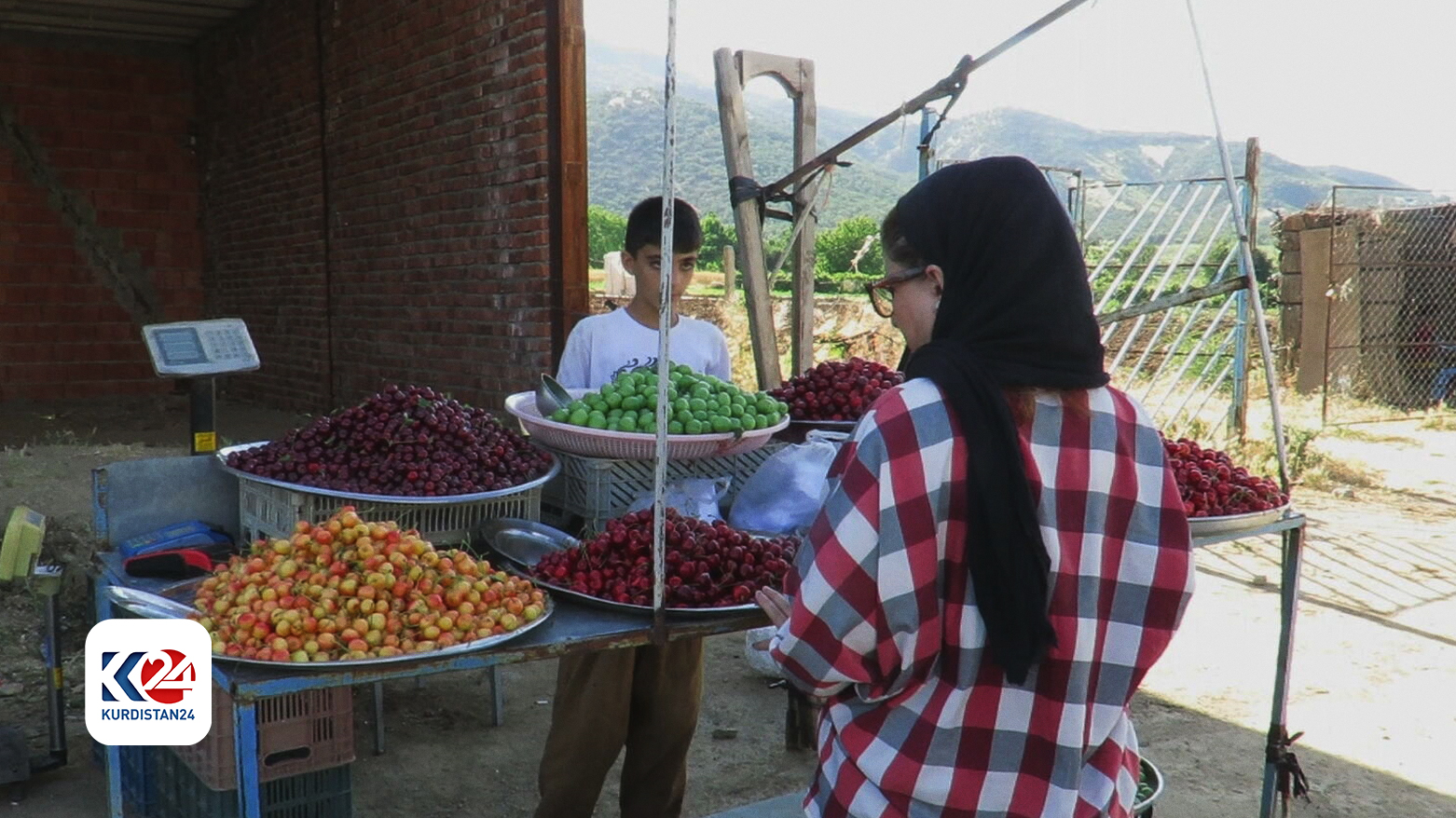Farmers in Marivan Bypass Markets to Sell Crops Directly on Roadsides
Farmers cite the significant portion of profits taken by brokers, which inflates fruit prices, as a key reason for selling their produce on the sidewalks and roads between cities and villages.

ERBIL (Kurdistan 24) – Farmers and gardeners from villages around Marivan are increasingly choosing to sell their crops directly on the roadsides rather than sending them to wholesale markets in Marivan and other cities. This trend has persisted for over a decade due to a lack of fair market supervision.
Villages around Zrebar in Marivan have avoided sending their agricultural products to regional markets for more than ten years. Farmers cite the significant portion of profits taken by brokers, which inflates fruit prices, as a key reason for selling their produce on the sidewalks and roads between cities and villages.
“Every year, we sell our products here, and buyers come from Marivan and other areas. However, the government has not provided any services or facilities for us or the farmers, whether it is roads or official permits,” one farmer explained.
Despite these challenges, the roadside markets attract many residents of Marivan and tourists from other cities, who come to purchase fresh, local, and organic fruits. Some shoppers make weekly trips to stock up on enough fruit for their families.
Madeh Amjadi, a resident of Marivan, praised the practice, saying, “It is a very nice and good job. All their products are natural and fresh. I pass here once a week and buy anything that I need from them.”
“The prices of fruits and vegetables here are much cheaper than in the urban markets because they are bought directly from farmers,” Amjadi added.
Agriculture remains the main source of income for many people in Marivan and similar areas. However, the absence of fruit refrigeration facilities, industrial canning factories, and a fair policy for purchasing, marketing, and exporting farmers' products forces farmers to sell their produce quickly and cheaply to customers.
The lack of infrastructure and government support continues to pose significant challenges for farmers, impacting their ability to sell their products at fair prices and reach broader markets.